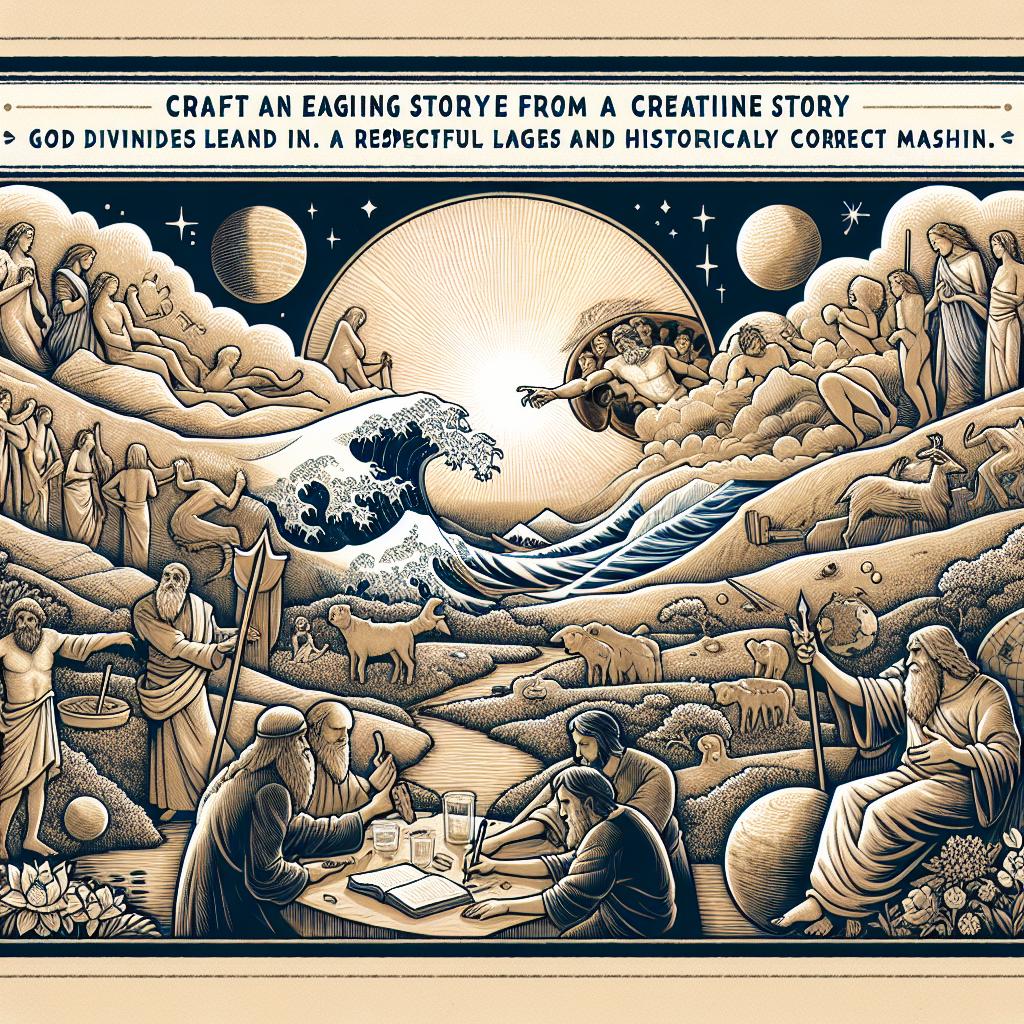
Genesis: Unveiling the Historical Insights of Bible Authors
Published: 14 August 2024
Is the Book of Genesis in the Bible Believed to be History?
The Book of Genesis in the Bible is often seen as a foundational text that teaches us about the nature of God as the Creator. Some argue that the details of creation in Genesis are not important, as the main focus should be on the theological truths of who created everything and why. However, if we cannot trust the historical accuracy of the details in Genesis, then why should we trust that God is the creator of the universe?
It is important to note that the authors of other books in the Bible treat the events, people, and timelines mentioned in Genesis as historical facts rather than metaphors, poetry, or fables. This suggests that they believed Genesis to be a true account of history.
The Perspective of Jesus and Paul
When Jesus taught about marriage, he referenced Genesis 1:27 and 2:24, which describe how God created the first man and woman and established the foundation for marriage as one man and one woman. This indicates that Jesus considered Adam and Eve to be real historical figures and their story to be true.
Furthermore, Jesus spoke about Adam and Eve being created at the beginning and emphasized their unique creation. He did not suggest an evolutionary process. This supports the view that Adam and Eve were recent creations, not products of billions of years of evolution.
Paul, a prominent figure in early Christianity, also believed in the historical reality of Adam's sin and its consequences. He connected Adam's sin and death with Christ's redemptive work, highlighting the significance of Adam as a real person in human history.
The Genealogies and Historical Figures
The Gospel of Luke traces Jesus' genealogy back to Adam without any apparent breaks. This implies that every person mentioned in the genealogy is considered a historical figure rather than a mythical character. It includes Adam himself, who was directly created by God, not evolved from a long line of ape-like ancestors or algae in a pond.
Jesus' genealogy is also crucial for the message of redemption. It establishes a blood relationship between Jesus and humanity, fulfilling the prophecy of a "kinsman redeemer" in Isaiah 59:20. Without accepting the historical accuracy of the genealogy, this connection and the possibility of salvation would be undermined.
Noah, the Flood, and the Ark
Both Jesus and Peter refer to Noah and the Flood as real historical events. Jesus draws a parallel between the days of Noah and his Second Coming, suggesting that just as people were living their lives without concern before the Flood, they will be similarly unaware when he returns. This implies that Jesus considered the Flood to be an actual event with significant implications for humanity.
Peter warns about false teachers who deliberately forget that the world was created by God through water and destroyed by water in the days of Noah. This reinforces the belief in a global flood as a historical event.
The Importance of Creation Order
Paul uses the order of creation to provide guidance on gender roles within the church community. He refers to the creation of Adam first and then Eve to establish his teachings on male-female relationships. By recognizing the order of creation, Paul emphasizes that men and women have distinct roles.
The significance of creation order is also evident in the Ten Commandments, where God commands the observance of the Sabbath based on His own pattern of creation. If each day of creation represented long periods of time, then our workweek should also reflect that pattern. However, it is more logical to interpret it as six literal days followed by one day of rest.
Why This Matters
Understanding Genesis as historical narrative matters because it forms the foundation for many key doctrines in Christianity. It affects our understanding of marriage, sin, redemption, and even our relationship with Christ. If we dismiss Genesis as allegory or mythology, we risk distorting these core beliefs.
Additionally, accepting the historical accuracy of Genesis is essential for sharing the Gospel with people from diverse backgrounds. For example, if Australian Aboriginals have been settled in Australia for over 40,000 years (according to carbon dating), how can they be descendants of Adam? How can they have a bloodline connection to Christ? It is crucial to recognize that all human beings share a common ancestry in Adam for salvation to be possible.
Think About It
- How does your understanding of the historical accuracy of Genesis impact your faith and worldview?
- What are the theological implications of viewing Genesis as historical narrative versus allegory or poetry?
- How might accepting or rejecting the historical accuracy of Genesis affect your interpretation of other biblical teachings?
In conclusion, the authors of the Bible treat the Book of Genesis as a historical account, not just literature or theological concepts. The perspectives of Jesus, Paul, and other biblical figures affirm the belief in the historical reality of Adam and Eve, Noah and the Flood, and other events mentioned in Genesis. Accepting Genesis as history is essential for maintaining key Christian doctrines and sharing the Gospel with diverse audiences.
